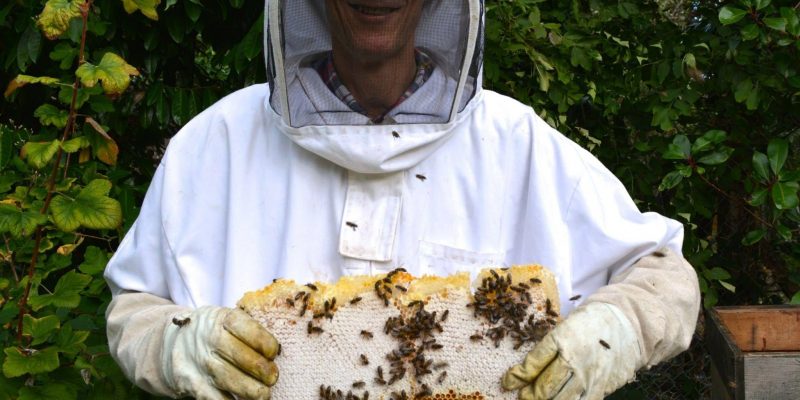Following growing pressures from a vast number of farmers up and down the country, the UK government has approved the use of EU banned pesticides containing neonicotinoid thiamethoxam. This comes in an emergency attempt to give sugar beets extra protection from virus yellow disease.
However, not all farmers are in accordance.
A 2016 report from Ipswichma.org called ‘How Neonicotinoids Can Kill Bees’, accounts that some effects of this chemical on honeybees include: ‘flight and navigation, reduced taste and sensitivity and slower learning of new tasks.’
George Mantzikous, owner of Hurn Honey farm in Ferndown, Bournemouth said he will not be using the pesticide: ‘’This will affect not only the bees but other insects as well. If you don’t look after them, they won’t look after you.
As a member of the Bee Farmers Association, he explained: ‘’No one can predict what will happen now and what the damage will be.’’
Ivor Kemp, chairman of East Dorset Bee Keepers’ Association, also expressed his concern over the government’s decision, calling it “morally abhorrent.’’
“I am Both angry, upset and resigned that this would happen. It not only kills bees but many insects which, of course, are eaten by birds. The bees and other pollinators have a huge influence on the production of our food. About 80% of all Supermarket produce is dependent on pollinators.’’
Other bee associations in the south have decided to write directly to George Eustice, the Secretary of State for Environment, Food and Rural Affairs who agreed to the pesticides’ use.
The letter from Stewart Gould, chair of Somerset BKA, said:
“This is not just a whining email from yet another beekeeper, worried about his hobby and ‘pets’. We know that the intended derogation of neo-nicotinoid use is for a limited period and is to be used on sugar beet seed, a plant which is harvested before it flowers, and therefore doesn’t attract bees, but systemic neonicotinoids, thiomethoxam in this case, are not selective, and are poisonous to all insects, airborne and in the soil, and threatening all kinds of bees and all other pollinators in particular.
Despite being systemic, 95 per cent of neonicotinoid seed treatment ends up in the soil, disrupting soil life or getting dispersed in dust to nearby crops. Your ruling on their use dictates that oilseed rape may not be planted in the same soil for a protracted period of time, giving truth to the concerns over the half- life of these neuro-toxins. You also direct that plants in the immediate surrounds be killed off using other toxic chemicals, but that this is to protect pollinators from poisoning. Unfortunately, it doesn’t quite work like that. Herbicides can also have detrimental effects on insects, and mammals. Furthermore, blanket coverage of herbicides will reduce available food sources for many species.
If that were not enough, as these chemicals remain active for prolonged periods, they will, inevitably, run off the land and into our waterways, increasing the amount of pollution in already badly tainted streams and rivers, and killing fish into the bargain. Apart from being toxic to all insects, and harmful to most other animals, they are also hazardous to humans. Intelligent regulation must accept that there is no safe level for a neuro-toxin or endocrine disrupter, only degrees of risk and levels of benefit. One third of food is dependent on insect pollination and in the UK insects pollinate 70 types of crop from apples to zucchini.
Your second in command, Victoria Prentis, who claims to be a beekeeper, said on BBC Radio 4 the other morning that you have been ‘following the science’, but that tells us very little, and we have all heard that old chestnut a little too frequently of late. Try listening to the science of Professor Dave Goulson of the Laboratory of Life Sciences at the University of Sussex, and you will certainly get a very different science to follow.
There has to be a better way of dealing with this problem. Perhaps one of the Government’s ‘circuit breakers’, but something has to be done to protect already chronically depleted insect populations.’’
If you would like to share your views with the Department for Environment Food and Rural Affairs, click on the link here or reach us on Twitter.


 Mayor leads laptop appeal for local children with no technology
Mayor leads laptop appeal for local children with no technology